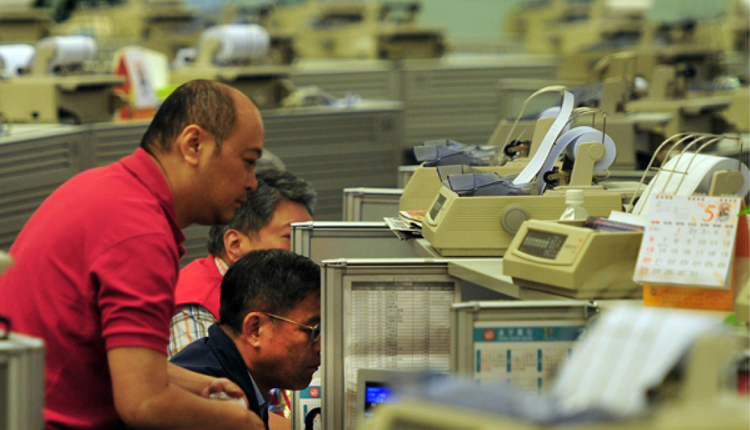Asian shares closed slightly lower on Friday following overnight news that U.S. President Donald Trump canceled a scheduled summit with Kim Jong Un.
South Korea’s Kospi slipped 0.21 percent to 2,460.80, with gains in tech heavyweights failing to give the overall index a boost as steelmakers and financials took a hit. Over in Australia, the S&P/ASX 200 shed 0.07 percent to end at 6,032.80, with the energy and materials subindexes contributing to losses.
Greater China markets eased in the morning, with Hong Kong’s Hang Seng Index slipping 0.48 percent by 3:00 p.m. HK/SIN as energy and tech sector stocks moved lower. On the mainland, the Shanghai composite edged down by 0.4 percent to finish at 3,142.17 and the Shenzhen composite declined 0.93 percent to 1,810.03.
Japan’s Nikkei 225 erased early losses to close higher by 0.06 percent, 13.78 points, at 22,450.79. Airline stocks were buoyed after the fall in oil prices overnight while the Topix oil and mining sectors slid 0.87 percent and 2.82 percent, respectively.
Despite those slight gains, the Nikkei still finished the week down by more than 2 percent, according to Reuters data.
Other markets were also lower for the week, with the Shanghai composite declining around 1.2 percent. MSCI’s index of shares in Asia Pacific excluding Japan was more sanguine, edging higher by 0.09 percent in Asia afternoon trade.
The moves lower came after Trump canceled a planned meeting with North Korean Leader Kim Jong Un that had been set to take place in Singapore on June 12. Trump said participating in the summit would be “inappropriate” given the “tremendous anger and open hostility” displayed by North Korea, which had reportedly suspended direct communication with the U.S. this week.
But following Trump’s announcement on the cancellation, North Korea said it was willing to resolve issues with the U.S., the country’s state-run KCNA reported on Friday.
“Risk aversion may persist in the interim, especially on uncertainty over China’s role in the U.S.-DPRK negotiation (as suggested by Trump) amid the recent uptick in geopolitical tensions again,” OCBC Bank analysts wrote in a morning note.
U.S. stocks finished the session lower, with the Dow Jones industrial average slipping 0.3 percent. Still, that was less severe than the 280-point fall seen after news of the cancellation was announced.
Gold, seen as a safe-haven during periods of uncertainty, pared some of its overnight gains but stayed above the $1,300 per ounce levels.
The dollar firmed against the Japanese yen after sliding overnight, last trading at 109.42 at 2:45 p.m. HK/SIN. The dollar index, which tracks the greenback against a basket of currencies, rose to 93.919 after dipping on Thursday.
South Korean and Japanese automaker traded mostly lower, extending Thursday’s declines after the U.S. Department of Commerce said it had started an investigation into automobile imports on a “national security” basis. U.S. Commerce Secretary Wilbur Ross told CNBC on Thursday that “economic security is military security.”
On Friday, Toyota Motor declined 1.29 percent, Honda Motor was lower by 0.93 percent and in Seoul, Hyundai Motor and Kia Motors slipped 0.71 percent and 1.38 percent, respectively.
Markets in the region had closed mostly lower in the last session following that announcement.
In individual movers, shares of Samsonite fell 13.19 percent by 3:00 p.m. HK/SIN in Hong Kong after the luggage maker said allegations in a recent short seller report were “one-sided and misleading.” Blue Orca Capital, which issued the report, had accused Samsonite of having questionable accounting practices.
Lenovo Group, meanwhile, was up 6.65 percent by 3:01 p.m. HK/SIN after the PC maker announced fourth-quarter revenues rose 11 percent on year, full-year revenue coming in at a three-year high, according to Reuters.
The company also recorded at $189 million loss for the fourth quarter, which was larger than the $161.3 million average in a Thomson Reuters poll.
Source: CNBC
